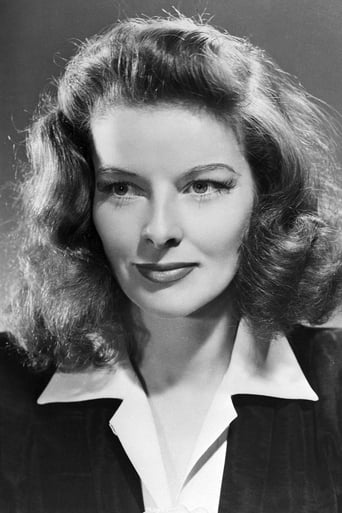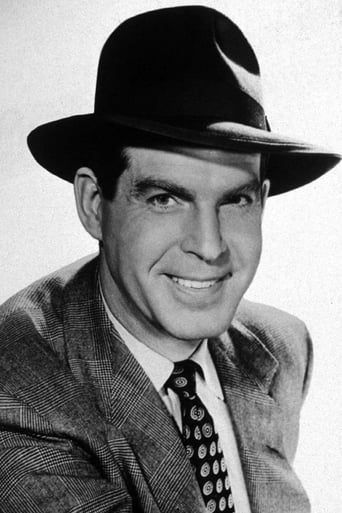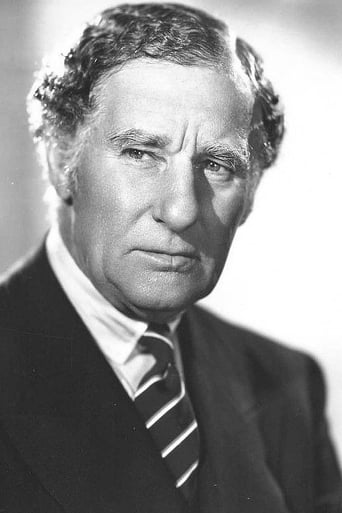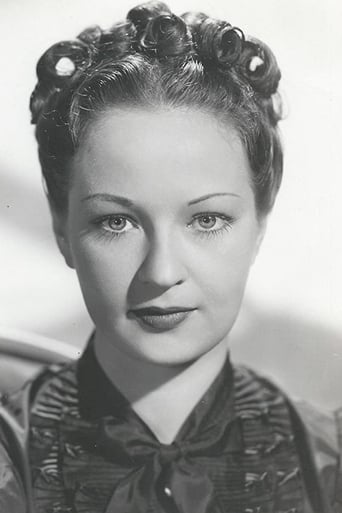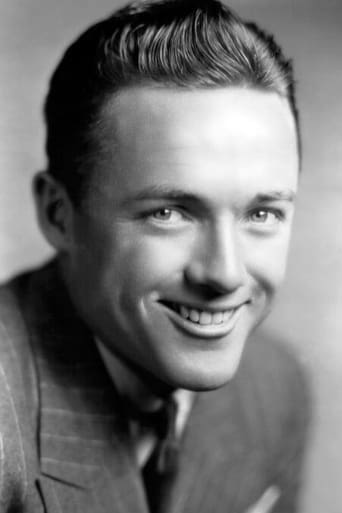Lumsdal
Good , But It Is Overrated By Some
Arianna Moses
Let me be very fair here, this is not the best movie in my opinion. But, this movie is fun, it has purpose and is very enjoyable to watch.
Haven Kaycee
It is encouraging that the film ends so strongly.Otherwise, it wouldn't have been a particularly memorable film
evanston_dad
Katharine Hepburn gives a sensational performance in this screen adaptation of Booth Tarkington's novel.Hepburn plays the titular Alice, a young social climber who's embarrassed by her humble origins and working class family and dreams of inclusion among the upper crust of society. One said member, played by Fred MacMurray, falls for her against all odds, and a large bulk of the film details a disastrous dinner party she throws for him in her home, a cringe-worthy dinner if ever there was one, during which she pretends the entire time to be something she's not and which ends with a prolonged monologue that by its end has her convincing him that he doesn't really want her because she's so flustered and mortified by how badly everything went. It's an amazing little bit of acting on the part of Hepburn in a film that earned her her second of twelve career Academy Award nominations for Best Actress.I've not read the book the film is based on, but I'm guessing that it doesn't end anywhere nearly as patly or tidily as the movie. I guess I could be wrong.In addition to Hepburn's nomination, "Alice Adams" was also nominated for Best Picture in a year that saw twelve nominees.Grade: A
disinterested_spectator
The title character of "Alice Adams," played by Katherine Hepburn, is a young woman who lives in a small town named South Renford. At first, it appears to be the strangest small town you ever saw, because everyone seems to be rich except the Adams family. Alice gets invited to dances and parties by rich women, but she cannot afford to dress the way they do. The rich men never ask her out, so she has to coerce her brother Virgil to escort her. At the dance, the rich men prefer to dance with rich women, and as her brother deserts her, she is left alone and comes across as a wallflower. In other words, we never see other young women of working class background for her to be friends with, and we never see working class men ask her out for a date. What an odd town.Of course, we know that this cannot be. No town is like that. In fact, there are bound to be far more working class families than rich ones: young women of her own class to be friends with; young men of her own class to date. Moreover, it is clear that her brother does stick to his own class. He even enjoys shooting craps with black servants, and at the dance, he greets the black bandleader, who in turn is happy to see him. They obviously know each other from nightclubs where working class people go to have fun. But not Alice. In fact, she is mortified when her brother says "Hi" to the bandleader.To put it bluntly, Alice is a big phony. And yet, we know we are supposed to feel sorry for her. To a certain extent we do. We all know how young people desperately want things that really don't matter, and it is painful to watch her suffer so from pretending to be something she is not, especially when we also know that she could be happy, if she just let all that go. In fact, that is why we never see young women of her own class inviting her to parties or young men of her own class asking her out. If we did, and she snubbed them, we would despise her. But by making it look as though she lives in a town where everyone is rich but her and her family, absurd as that is, we are more forgiving, because we are led to believe that she has no such opportunities.At the dance, Alice meets Arthur (Fred MacMurray), who seems to be quite taken with her, but she is just as much of a phony with him as with everyone else. It is hard to understand what he sees in her.But while we are trying to overlook Alice's affectations as the folly of youth, we discover that her mother, apparently in her fifties, is just as foolish as Alice in such matters. Instead of encouraging Alice to stay within her class, she berates her husband for not making more money so that Alice can continue to socialize with the town's upper crust. So much for the wisdom that supposedly comes with age.Alice's father is recovering from a long illness. His boss, Mr. Lamb, continues to pay him a salary and holds his job open for him, and her father wants to go back to work there when he gets better. But Alice's mother pushes him to go into business by starting a glue factory, based on a formula that actually seems to belong to his boss, inasmuch as Alice's father discovered it on company time.What we are hoping for is that Alice will realize how foolish she has been. Instead, the movie justifies her. Virgil gets into a jam and steals $150 from Mr. Lamb, whom he also works for, probably to pay off a gambling debt. In other words, we can no longer admire Virgil for being content to fraternize with those in his class, thereby making it seem right for Alice to avoid such people as unworthy.Anyway, with Alice's father stealing the glue formula and Alice's brother stealing the money, Mr. Lamb shows up at the Adams house to let them have a piece of his mind. It all looks pretty grim. But Alice tells him that it is all her and her mother's fault for pushing her father to make more money. Mr. Lamb is magnanimous, willing to let Alice's father have his job back when he gets well, willing to give them time to pay back the $150, and willing to let Alice's father share in the profits from the glue formula.But we should note that while Alice takes responsibility for her and her mother pushing her father to start a glue factory, she gives no indication that her desire to hobnob with rich society was an unworthy goal, only that she and her mother should not have pushed her father to make more money.Ultimately, she has learned nothing. We had hoped that she would quit being a phony, make friends with women in her own class, and fall in love with a man who is also from a working class background. But no. The movie rewards her phoniness by having Arthur fall in love with her and want to marry her. Because he is one of the elite, and presumably has plenty of money, she will get what she always wanted, inclusion in the upper class of South Renford. Now she can be the real thing.
Applause Meter
Katherine Hepburn plays Alice Adams a foolish, annoying, young woman determined to be accepted by the town snobs who shun her. What goal in life could be a more worthy one than to focus on being accepted by those whose lives are measured on shallow values?! And poor Alice, her plight is a tortured one in which the movie audience is asked to join in on and root for her victory. Are we to sympathize with Alice because she is forced to wear an unfashionable, two-year old dress to a society dance? Katherine Hepburn certainly gives this performance the full benefit of her forceful personality, babbling incessantly and pretentiously to all those around, her finishing school accent only aggrandizing the assault. Her mother, played by Anne Shoemaker, certainly shares Alice's pretensions, bemoaning her daughter's social ostracization from the country club set, berating her husband Virgil, (Fred Stone), with shrewish insistency that he is a business and social failure. As far as Mrs. Adams is concerned, Mr. Adams' shortcomings have selfishly doomed their daughter to an undistinguished middle class life. Not that Mr. Adams isn't asking for what he gets; he's a childish, petulant man who wears his ignorance of the world like a medal of honor. Fred MacMurray is the socially acceptable suitor Arthur Russell who takes an interest in Alice, although why he is attracted to this strident girl trying too hard to impress, is a mystery. MacMurray, a bland presence in any movie he's in, basically portrays his character as a man in silent contemplation of a theater piece he's been given a front row center seat to take in, or as a hapless boob suffering in non-comprehension of what's going on. Whatever, he's just a prop put carefully in place.Hattie McDaniel has a small but showy role as the housemaid tasked with preparing and "waiting at table" to the assembled Adams' and their dinner guest for the evening, beau Arthur Russell. She's sloppy, dumb, inept and totally bereft of social poise. Mrs. Adams is so demanding that the maid (who is never referred to by name) becomes so flustered, she falls down the basement stairs to the dismay of Mr. Adams. He just hopes that when the servant took her fall, she didn't break any of his things!This movie was based on a novel by Booth Tarkington, a Pulitzer Prize wining author whose writing and literary glory has now faded and with reason. Tarkington came from political family, wealthy, conservative businessmen with a bona fide WASP pedigree. His preoccupations were the circumscribed environs of small town Midwest life---the social stratification, the importance of wealth and the petty world of class distinction. Tarkington doesn't condemn this elitist dominance; he legitimatizes societal differentiation determined by material distinction as irrevocable and correct. You just got to feel sorry for people like Alice, and families like the Adams clan. They're just pathetic nobodies. This movie plays an old tune out good and loud with all false cords and superficial sentiment. It's a real "antique" and not of the valuable kind.
Ishallwearpurple
Encore: Alice Adams (1935) Katheryn Hepburn, Fred MacMurray, Fred Stone, Ann Shoemaker, Hattie McDaniel. Marvelous story from the book by Booth Tarkington, of a small town girl who is trying to keep up appearances among her former friends, as her family sinks farther into poverty. One of her 'friends' invites her to the party of the season, at the mansion of her former girlfriends family, and she has to wear a 2 year old out-of-season gown. And go with her reluctant brother as her escort. There she meets a wealthy young man who dances with her and she is smitten. From this set up of the social order in this town, we have scenes of the home life of the Adams family. When the beau comes calling, Alice won't ask him in; she is too embarrassed about her home. Finally, he challenges her to meet the rest of her family; and her Mom keeps wanting her to have him for dinner. So she does. In a scene that is so funny it is heartbreaking, on the hottest night of the year; serving hot food when they are all melting; and melting aspic and ice cream, it is a disaster. Alice tells Arthur she knows he just wants to get away from this place. With a side story of her father and his problems and why the family has lost its' middle class existence, the film winds down to a happy ending when Arthur comes back and he and Alice make up. The book has a harsher end for Alice, but this is Hollywood. Good film anyway, with scenes that break your heart if you have ever been embarrassed by who you are, or by so-called friends. 9/10 http://www.imdb.com/title/tt0026056/

